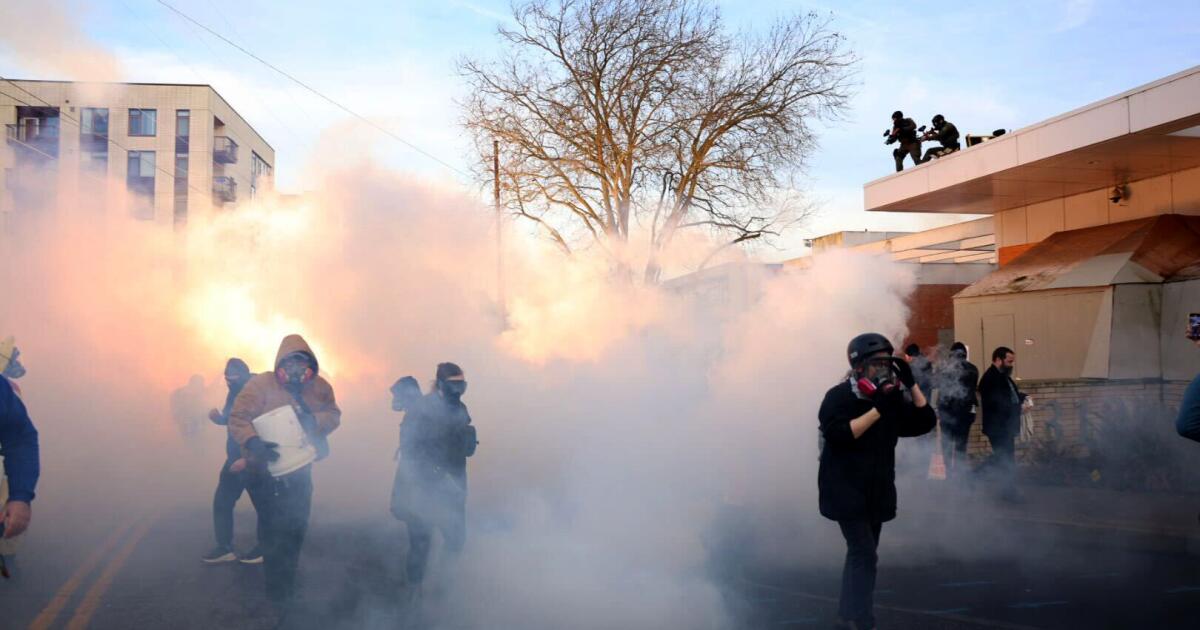Portland mayor demands ICE leave the city after federal agents gas protesters
PORTLAND, Ore. — The mayor of Portland, Ore., demanded U.S. Immigration and Customs Enforcement leave his city after federal agents launched tear gas at a crowd of demonstrators — including young children — outside an ICE facility during a weekend protest that he and others characterized as peaceful.
Witnesses said agents deployed tear gas, pepper balls and rubber bullets as thousands of marchers arrived at the South Waterfront facility on Saturday. Erin Hoover Barnett, a former OregonLive reporter who joined the protest, said she was about 100 yards from the building when “what looked like two guys with rocket launchers” started dousing the crowd with gas.
“To be among parents frantically trying to tend to little children in strollers, people using motorized carts trying to navigate as the rest of us staggered in retreat, unsure of how to get to safety, was terrifying,” Barnett wrote in an email to OregonLive.
Mayor Keith Wilson said the daytime demonstration was peaceful, “where the vast majority of those present violated no laws, made no threat and posed no danger” to federal agents.
“To those who continue to work for ICE: Resign. To those who control this facility: Leave,” Wilson wrote in a statement Saturday night. “Through your use of violence and the trampling of the Constitution, you have lost all legitimacy and replaced it with shame.”
The Portland Fire Bureau sent paramedics to treat people at the scene, police said. Police officers monitored the crowd but made no arrests Saturday.
The Portland protest was one of many demonstrations nationwide against the Trump administration’s immigration crackdown in cities including Minneapolis, where in recent weeks federal agents killed two residents, Alex Pretti and Renee Good.
Federal agents in Eugene, Ore., deployed tear gas on Friday when protesters tried to get inside the federal building near downtown. City police declared a riot and ordered the crowd to disperse.
President Trump posted Saturday on social media that it was up to local law enforcement agencies to police protests in their cities. But he said he has instructed Homeland Security Secretary Kristi Noem to have federal agents be vigilant in guarding U.S. government facilities.
“Please be aware that I have instructed ICE and/or Border Patrol to be very forceful in this protection of Federal Government Property. There will be no spitting in the faces of our Officers, there will be no punching or kicking the headlights of our cars, and there will be no rock or brick throwing at our vehicles, or at our Patriot Warriors,” Trump wrote. “If there is, those people will suffer an equal, or more, consequence.”
Wilson said Portland would be imposing a fee on detention facilities that use chemical agents.
The federal government “must, and will, be held accountable,” the mayor said. “To those who continue to make these sickening decisions, go home, look in a mirror, and ask yourselves why you have gassed children.”
